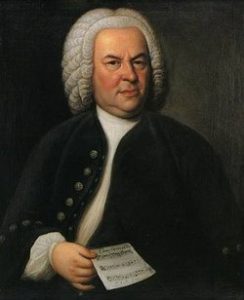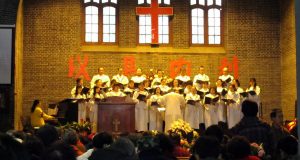Welcome! We at Wildrose Music are pleased to associate with musicians from around the globe, bringing music to the people wherever they are. Our goal is to produce and distribute to our customers our own new and arranged music as well as the music of other fine composers in our circle.
All downloadable music from Wildrose Music is under special license, so that the original purchaser may make as many copies as necessary for the musicians that will be performing. See the Licensing information here.
Browse our Store to see what is currently available.
We hope you will visit often to discover new music for every occasion. We also recognize that our customers have individual needs and are happy to take suggestions and ideas for new or arranged music that would meet the needs of our patrons. Thank you for your support!

 On this glorious day, I am thinking of Bach. Yes, of course Bach. That hero of music, nearly unknown in his lifetime, and eminently legendary ever since; that epitome of greatness in music and innovation. But, do you know what I would like to see? I would like to see more people looking to Bach, not just for interesting performances, done with different instruments in different places, not just homilies and remembrances and endless historical reviews; I would like to see more people looking to Bach for the thing which Bach did best: Composition. Countless times, we have heard of the influence of one great composer on another great composer, but what about this most unique period in history today? We have the advantage, the unspeakable advantage and the almost unheard-of possibilities resulting from the advent of sound equipment and recording technology, thus to be influenced in powerful ways by whatever composer(s) we choose!
On this glorious day, I am thinking of Bach. Yes, of course Bach. That hero of music, nearly unknown in his lifetime, and eminently legendary ever since; that epitome of greatness in music and innovation. But, do you know what I would like to see? I would like to see more people looking to Bach, not just for interesting performances, done with different instruments in different places, not just homilies and remembrances and endless historical reviews; I would like to see more people looking to Bach for the thing which Bach did best: Composition. Countless times, we have heard of the influence of one great composer on another great composer, but what about this most unique period in history today? We have the advantage, the unspeakable advantage and the almost unheard-of possibilities resulting from the advent of sound equipment and recording technology, thus to be influenced in powerful ways by whatever composer(s) we choose! rateful for my wonderful heritage! As a child I experienced many different faiths. I consider this rich background to be a wonderful foundation for this business of producing music. Much of what I have written has been for the church; and I say church in it’s broadest sense. People of faith often have much in common. One of those things can be music. I love how music bridges the gaps between religions and brings people to the core of what it is all about. I want to be a part of what makes America great. Our heritage of faith is one of those pillars of greatness, and music is, in my view, the largest foundation stone. Here’s to the music we all have in common. and here’s to the music we will have in common in the future which we have yet to discover!
rateful for my wonderful heritage! As a child I experienced many different faiths. I consider this rich background to be a wonderful foundation for this business of producing music. Much of what I have written has been for the church; and I say church in it’s broadest sense. People of faith often have much in common. One of those things can be music. I love how music bridges the gaps between religions and brings people to the core of what it is all about. I want to be a part of what makes America great. Our heritage of faith is one of those pillars of greatness, and music is, in my view, the largest foundation stone. Here’s to the music we all have in common. and here’s to the music we will have in common in the future which we have yet to discover!